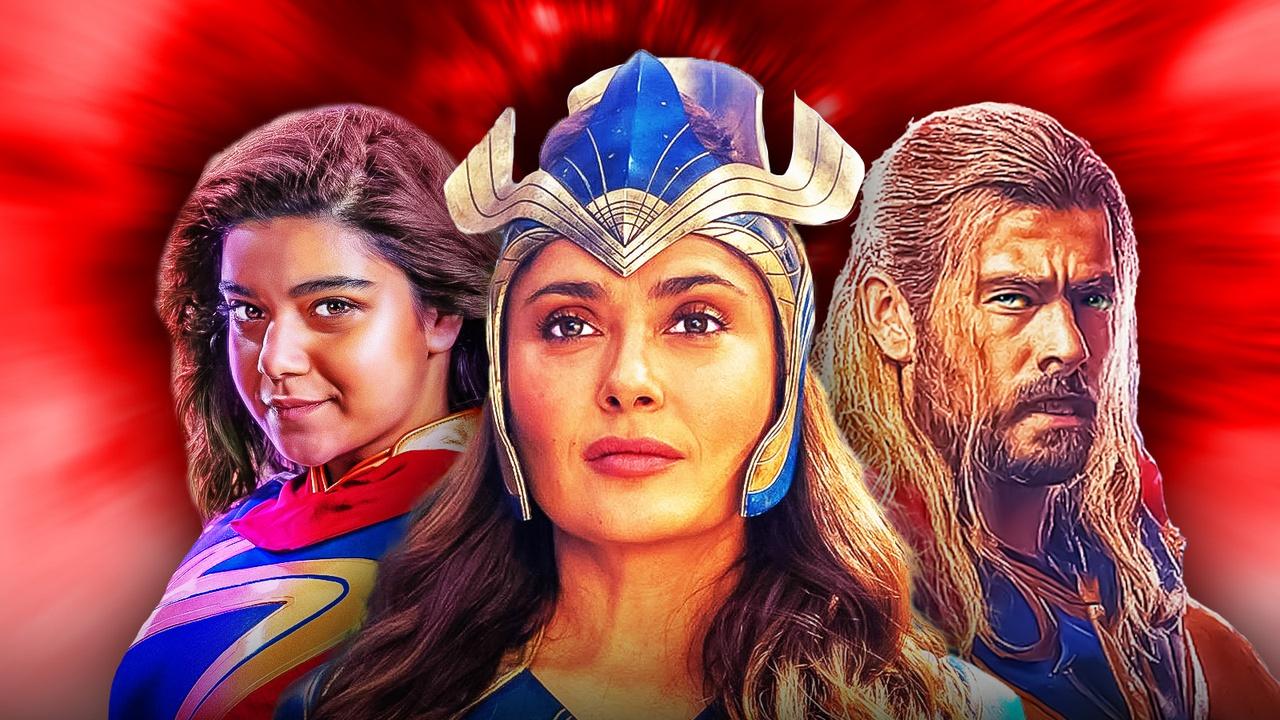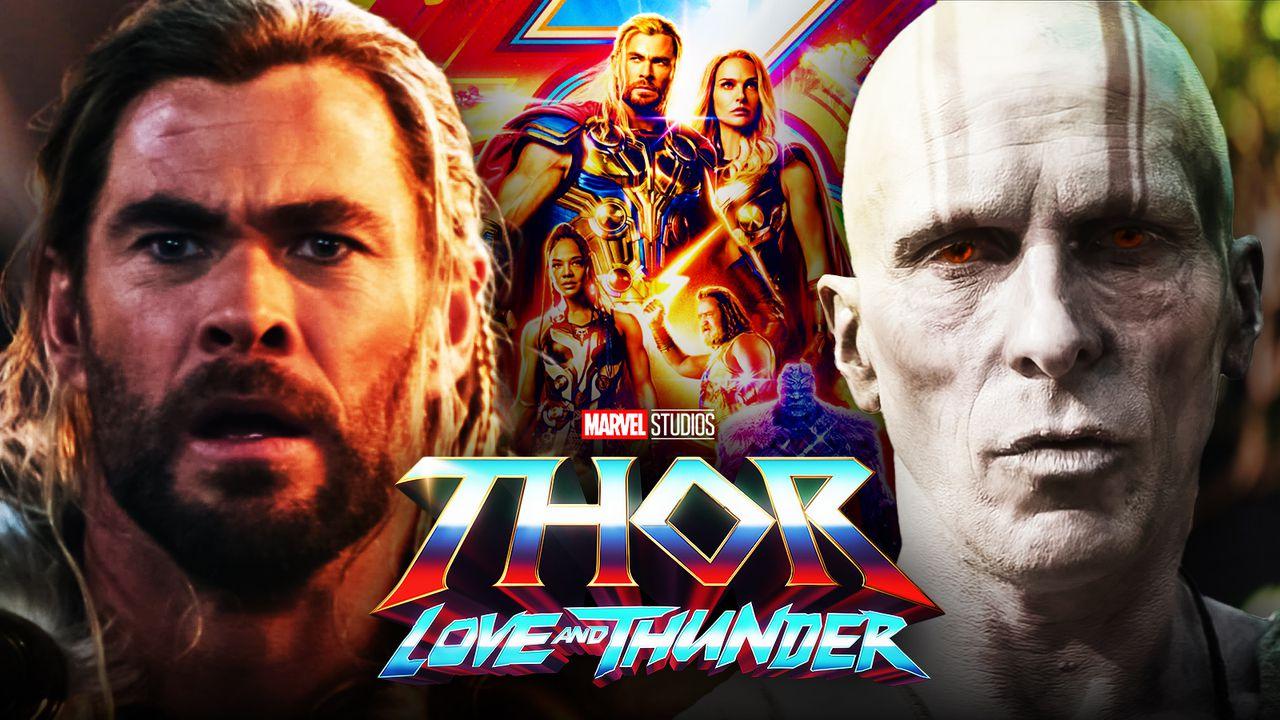
Lately, some recently released Marvel films have failed to impress critics and audiences alike, sparking worries about the direction of the Marvel Cinematic Universe (MCU). Previously considered an unstoppable box office juggernaut, the MCU has encountered a series of underperformers that hint at more than just burnout from the franchise.
In the movies Eternals and Ant-Man and the Wasp: Quantumania, as well as The Marvels, audiences didn’t seem to connect on a deeply emotional level. Pedro Pascal, starring in The Fantastic Four: First Steps, recently expressed this sentiment during an interview with Reuters, stating, “It’s all about family, caring for humanity, protecting human innocence, and understanding that we can’t do it alone; we must do it together.
In a somewhat common approach for superhero movies, the actor’s focus on family and solidarity could appear as mere promotional jargon. However, it subtly underscores the essential element that has been lacking in Marvel’s most notable failures.
Marvel Studios consistently shines in delivering grandeur and action, but what truly sets their most triumphant movies apart is a shared theme: these superhero narratives thrive when they are essentially tales of familial ties, be they blood-related or forged through mutual experiences.
The Family Formula That Built Marvel’s Success
The initial Avengers movie wasn’t successful merely due to its spectacular action scenes or famous cast members. Instead, it thrived by establishing a complex family dynamic among its superheroes, featuring rivalries, mentor-protégé relationships, and the core message that they are more powerful united than separated. This approach has been instrumental in Marvel’s most triumphant productions.

Guardians of the Galaxy turned a collection of unrecognized comic book characters into cherished figures by weaving their narrative around a makeshift family. Although the movie wasn’t immune to criticism, its heartfelt essence stemmed from witnessing these outcasts learn to support one another, ultimately reaching its peak when they join hands to save the universe.
In Black Panther, the lore of Wakanda was deeply rooted in family tradition and duty, while Spider-Man: No Way Home focused on uniting three different Spider-Men across generations to craft a tale that transcended universes, emphasizing mentorship and camaraderie. Similarly, Iron Man resonated due to its focus on Tony Stark’s personal growth and learning to be an integral part of something greater than himself.
However, not all the films followed that formula well. Here are the ones that failed.
Eternals – Too Many Characters, No Family Chemistry
As a cinephile, I found it intriguing that Eternals seemed like Marvel’s most straightforward tale to spin, given its cast of immortal characters who had spent millennia together. The movie even showcased romantic entanglements and mentor-student dynamics among them. However, the execution seemed less straightforward than expected.
Although it featured a traditional family setup, the movie struggled to establish significant emotional bonds among its character relationships.

Instead of focusing on the grand scale and intricate lore as the issues, it was more about the movie failing to engage viewers emotionally with the portrayed relationships. With ten key characters vying for screen time, their connections seemed forced or artificial rather than authentic and well-developed. The film implied these individuals were a family, but failed to demonstrate why that connection should matter to the audience.
In a more relaxed rephrasing: Director Chloé Zhao emphasized deep philosophical ideas and breathtaking visuals in her work, but perhaps overlooked the importance of strong character development – something that Marvel fans typically value most, following the characters closely before appreciating the spectacle.
Thor: Love and Thunder – Lost Family Magic
In my humble opinion as a movie critic, “Thor: Ragnarok” triumphantly delivered by shedding the grandeur of ancient mythology and zeroing in on the complex bond between Thor and Loki, while concurrently forging an unconventional family unit with the Hulk and Valkyrie. The film’s heart-wrenching tension wasn’t derived from the annihilation of Asgard, but rather from Thor’s journey towards becoming a more compassionate brother and ruler.

In a different wording, Thor: Love and Thunder opted for a humorous approach entirely. Despite integrating Jane Foster’s cancer narrative and Thor’s past relationship, the film utilized these potentially moving emotional moments as sources of humor instead. As a result, the movie was overly preoccupied with being amusing, neglecting to deliver an emotionally impactful experience.
The movie’s portrayal of Gorr the God Butcher illustrates an issue at hand. Christian Bale gave a captivating portrayal as a father pushed to extremes due to the death of his daughter, yet the film failed to delve deeply into how his sorrow intertwined with Thor’s own family turmoil. Instead of creating a story about diverse fathers and their bonds with their kids, it turned out to be a superficial display.
Ant-Man and the Wasp: Quantumania – Abandoning the Family Core
The initial two “Ant-Man” movies thrived primarily because they were built around heartfelt family narratives. The main character, Scott Lang, consistently strived to be a responsible father to Cassie, while Hank Pym’s bond with Hope offered emotional richness. These films recognized that superhero powers like shrinking and quantum realms served merely as backdrops for tales centered around fatherhood, responsibility, and legacy.

In Quantumania, the focus shifted from a family-oriented narrative towards constructing multiple universes and introducing Kang. Although the movie attempted to touch upon Scott’s bond with Cassie, their father-daughter connection appeared contrived and unnatural.
As a movie enthusiast, I found the portrayal of Cassie Lang in this new film to be quite different from her past characters. Rather than the down-to-earth teenager we’ve grown accustomed to, she transformed into a typical youth activist. Her rebellious side seemed disjointed from the character we knew, creating a sense of disconnect. The bond between Cassie and Scott, which was once authentic and heartwarming, felt forced in this iteration, lacking the genuine father-daughter chemistry that made the earlier films so compelling.
The Marvels – Three Heroes, No Connection
In a simpler and more natural way of expression: The movie “The Marvels” introduced three strong female superheroes, but fell short in developing genuine relationships among them. Instead of portraying characters who felt like they belonged together organically, the storyline forced their alliance through narrative devices rather than character development. (Reference to Brie Larson’s comments on the film’s reception) This means that Carol Danvers, Kamala Khan, and Monica Rambeau were more like strangers brought together by plot convenience rather than characters who felt complementary to each other.

In this movie, the idea of characters swapping bodies could have been an excellent platform for character development, allowing them to grasp each other’s viewpoints and struggles. Unfortunately, it turned out to be more about physical humor that seldom led to emotional progression. The poor chemistry between the main actors made their eventual collaboration seem unjustified.
In a potential rephrasing, one might say: The emotional bond between Kamala Khan and Captain Marvel, stemming from her admiration for the superhero, could have been a key aspect of their relationship in the film, yet it failed to delve into the complexities of encountering your role model or the dynamics of mentorship.
The Success Stories: When Marvel Gets Family Right
As a movie enthusiast, I can attest that Marvel’s latest triumphs underscore the enduring power of the family theme when skillfully woven into their narratives. In Spider-Man: No Way Home, we witnessed an extraordinary gathering of three generations of Spider-Men, forging genuine emotional bonds through their intertwined journeys and supportive mentorship. The film’s staggering success wasn’t merely a nod to the past but a testament to heartfelt character relationships that resonated deeply with audiences.

In simpler terms, Guardians of the Galaxy Vol. 3 showcased an expert portrayal of familial relationships, completing the emotional arc for our team as they welcomed fresh members into their expanding family unit. The film’s power stemmed from observing these characters evolve and transform alongside each other over several movies.
In a poignant twist, “Black Panther: Wakanda Forever” skillfully tackled the actual-world passing of Chadwick Boseman yet still produced potent family scenes centered on grief, legacy, and collective healing within communities. By portraying its characters as authentic individuals grappling with loss instead of mere superhero stereotypes, the film showcased a profound emotional depth.
The Path Forward for Superhero Stories
Marvel’s initial triumph stemmed from recognizing that superhero narratives are essentially human tales, centered on characters rather than abilities. However, their more recent challenges hint at a lack of focus on this core concept, as they seem to have been sidetracked by constructing universes and managing franchises, potentially at the cost of character growth.
In a notable manner, Pedro Pascal’s focus on family and solidarity within The Fantastic Four: First Steps indicates that Marvel Studios is consciously choosing to reconnect with their emotional foundation.
In the realm of comic books, the Fantastic Four are often referred to as Marvel’s founding family, implying they were among the first characters created by Marvel (here’s where you can learn about the core team members). This makes them an ideal choice for showcasing that the studio is mindful of the essential elements that make superhero tales captivating.
As a devoted admirer, I firmly believe that Pascal’s insightful exploration of family dynamics in “The Last of Us” and “The Mandalorian” positions him as an outstanding candidate to spearhead Marvel’s revival. His knack for crafting genuine emotional bonds amid extraordinary circumstances could be the very key that the MCU needs to re-establish its dominance.
Victory in “The Fantastic Four: First Steps” might indicate a comeback tale for Marvel, demonstrating that even the strongest superhero realm can find its way back when recalling that real power lies within the connections we create together.
As our world grows more fragmented, perhaps the idea that “unity is key” is precisely the reassuring sentiment audiences yearn for.
Read More
- Best Controller Settings for ARC Raiders
- DCU Nightwing Contender Addresses Casting Rumors & Reveals His Other Dream DC Role [Exclusive]
- 7 Home Alone Moments That Still Make No Sense (And #2 Is a Plot Hole)
- Stephen Colbert Jokes This Could Be Next Job After Late Show Canceled
- Ashes of Creation Rogue Guide for Beginners
- Is XRP ETF the New Stock Market Rockstar? Find Out Why Everyone’s Obsessed!
- 10 X-Men Batman Could Beat (Ranked By How Hard It’d Be)
- 10 Most Brutal Acts Of Revenge In Marvel Comics History
- DC K.O.: Superman vs Captain Atom #1 Uses a Fight as Character Study (Review)
- Best coins for today
2025-07-27 18:07